

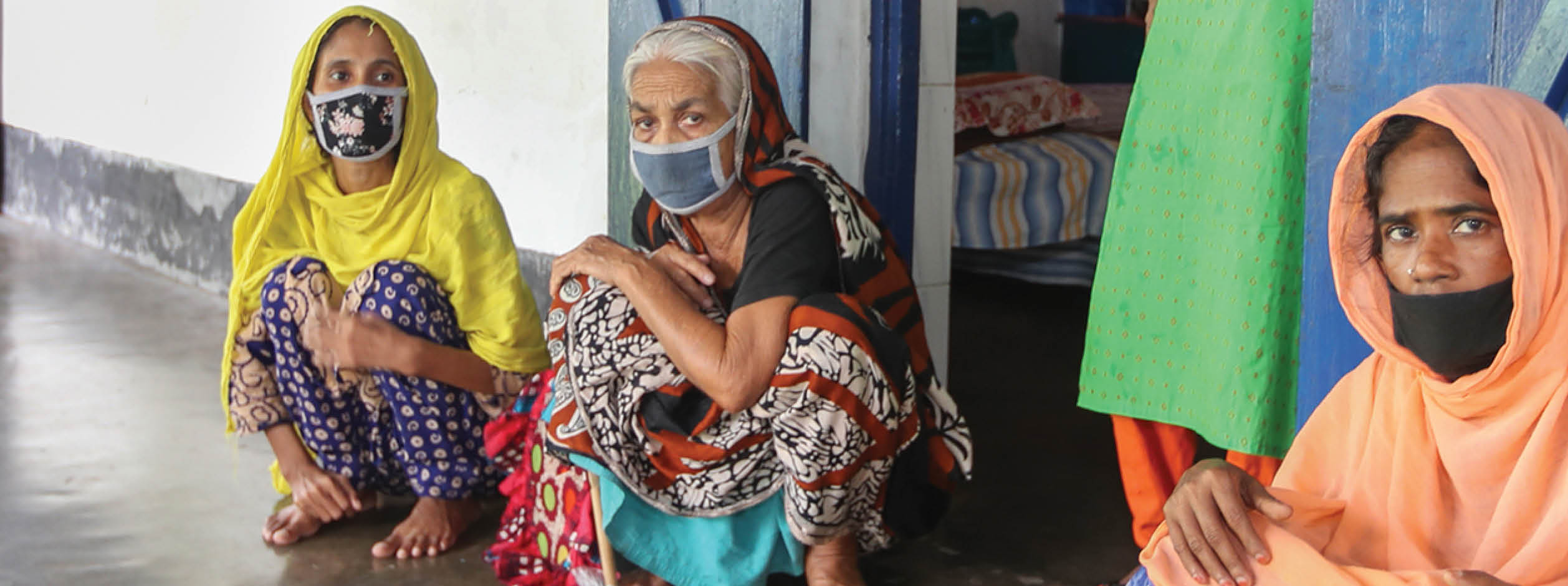

Research for
implementation
to reach vulnerable populations
and accelerate progress towards
universal health coverage

Tuberculosis patients at Jalchatra Hospital in Bangladesh

Enhancing evidence-informed decision-making
through the Structured Operational Research and
Training IniTiative (SORT IT)
SORT IT is a global partnership-based initiative coordinated by TDR and implemented with various partners. It aims to make countries “data rich, information rich and action rich,” thereby improving health care delivery and outcomes.
Participants conduct operational research on various topics such as multidrug-resistant TB, malaria, HIV/AIDS, neglected tropical diseases, maternal and child health, outbreaks and
emergencies, antimicrobial resistance and non communicable diseases. Scaled up to 1000 research projects in 93 countries, SORT IT has proven to be adaptable to various geographic contexts, thematic areas and research methodologies. Moreover, 70% of publications generated by SORT IT participants have demonstrated impact on policy and/or practice.
By October 2019 the sort it partnership was strengthened and franchised to include:
SORT IT expansion emphasizes franchising, LMIC-led publications and gender equity

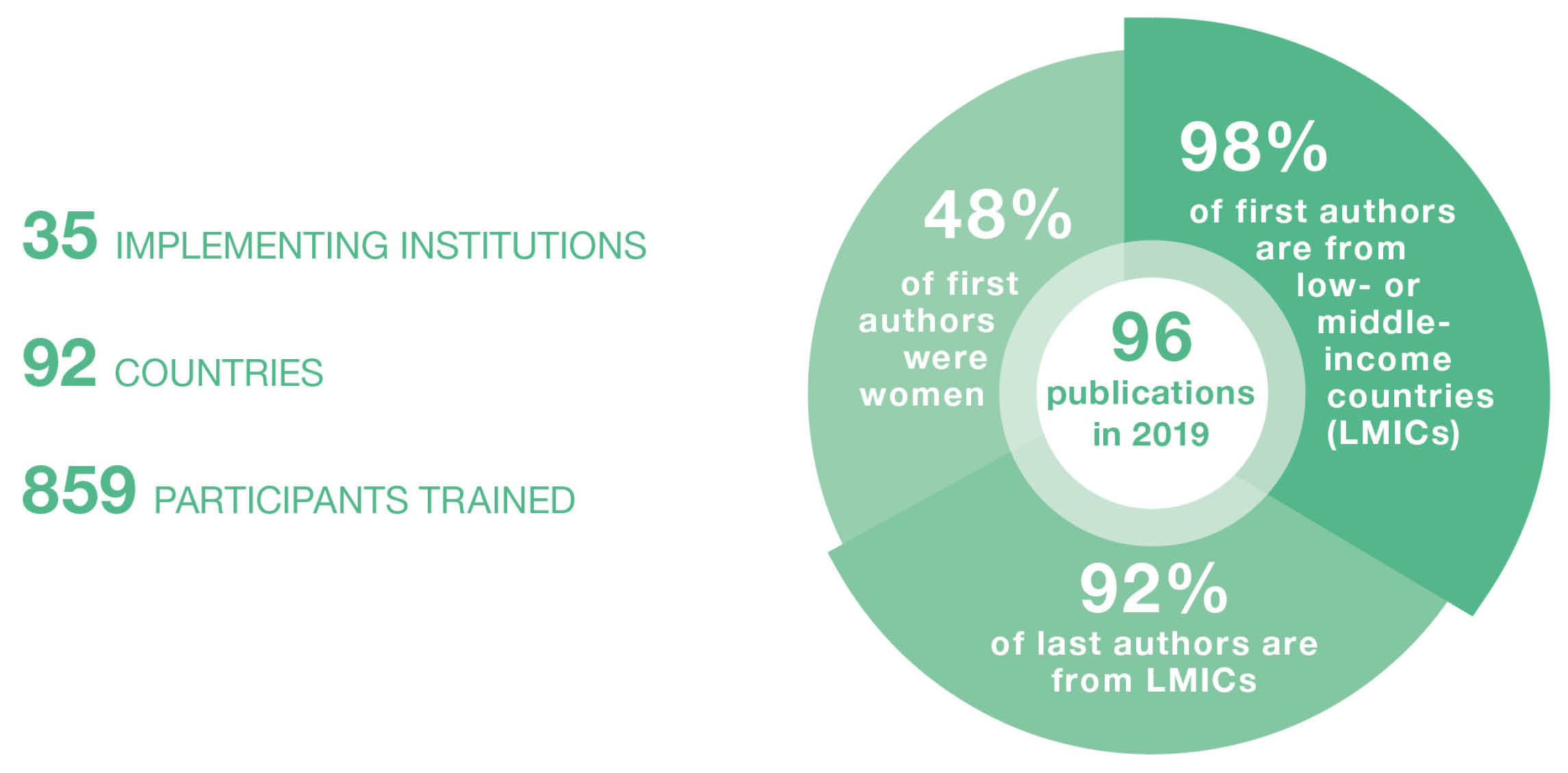
In Eastern Europe, SORT IT training courses funded by USAID and led by alumni of previous SORT IT courses were held in Armenia and Ukraine and led to the publication of 18 operational research studies on HIV and TB programmes in two special issues of the Journal of Infection in Developing Countries in July 2019.
The research and trainings were conducted in collaboration with the WHO Regional Office for Europe in the context of the European TB Research Initiative.
 The research findings are being used to optimize current programmes funded by the Global Fund and PEPFAR in Ukraine.
The research findings are being used to optimize current programmes funded by the Global Fund and PEPFAR in Ukraine.
 The WHO Regional Office for Europe is taking up the study findings, which are informing the implementation of the Roadmap to Implement the Tuberculosis Action Plan for the WHO European Region 2016–2020.
The WHO Regional Office for Europe is taking up the study findings, which are informing the implementation of the Roadmap to Implement the Tuberculosis Action Plan for the WHO European Region 2016–2020.
On the right: Dr Olga Denisiuk, a SORT IT alumnus who is now leading SORT IT training courses in Eastern Europe
SORT IT to accelerate universal health coverage for vulnerable populations in Eastern Europe
Findings from these studies are already making an impact on programmes. For example:
Below are some research highlights from the two special issues:
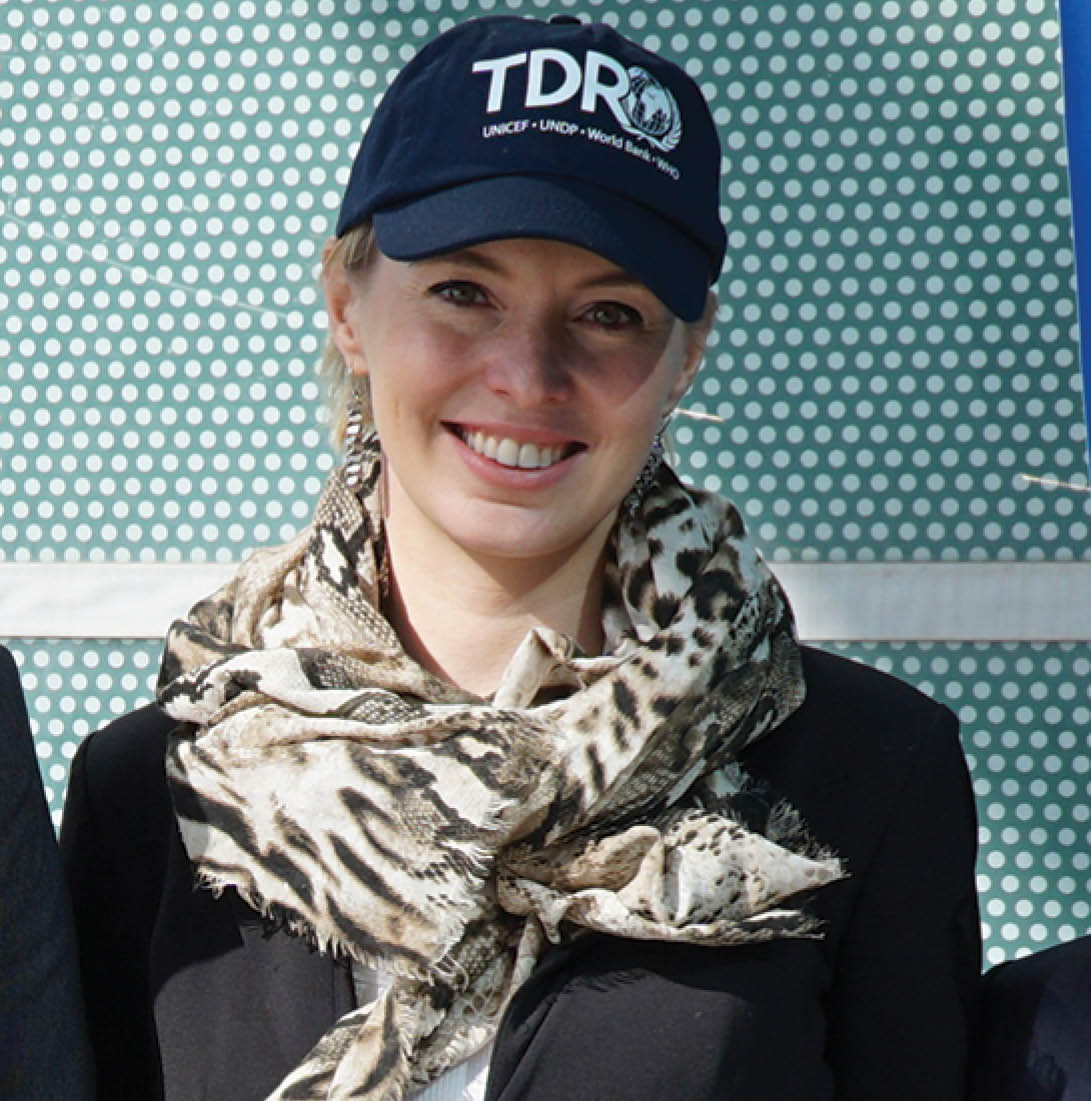
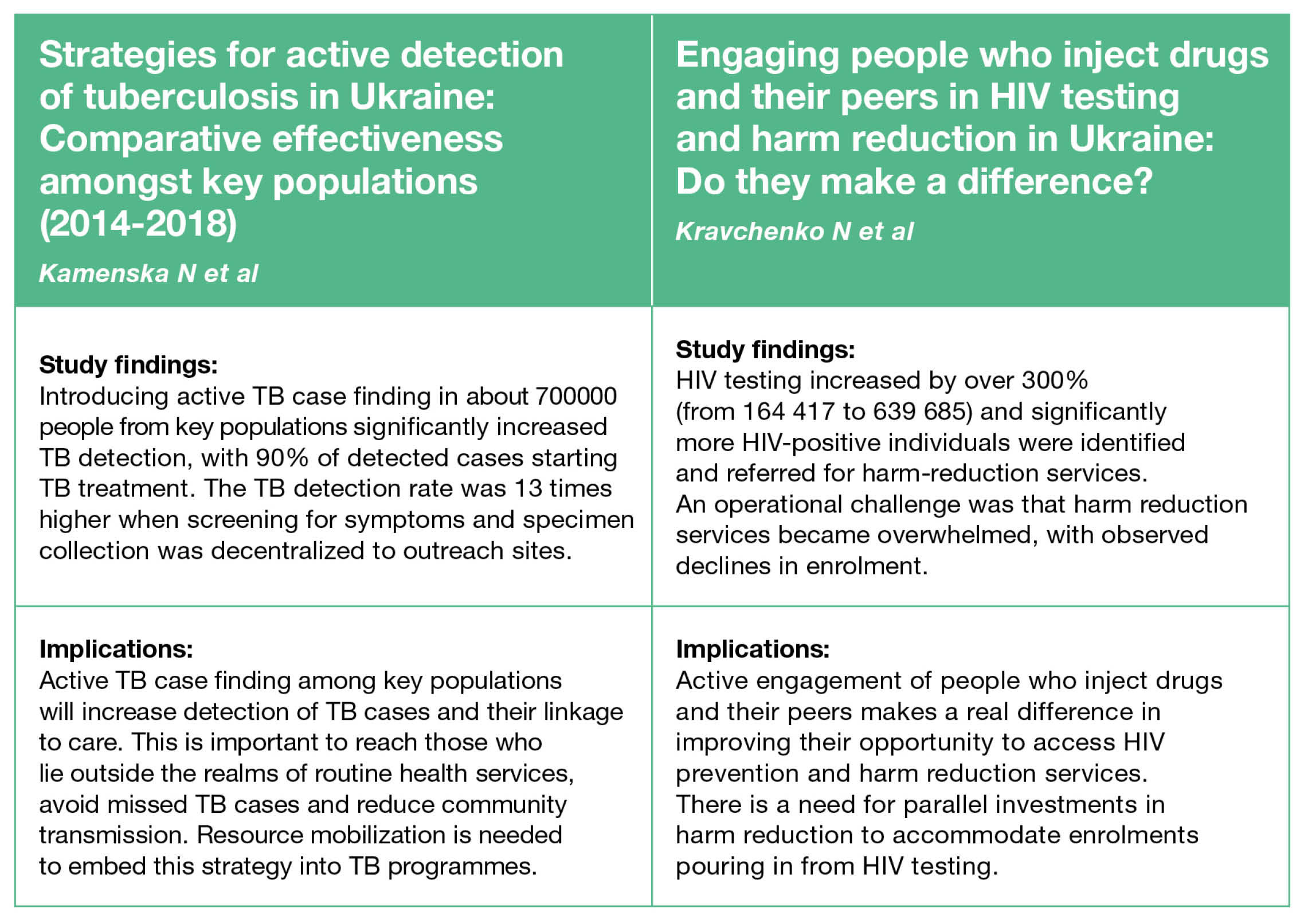
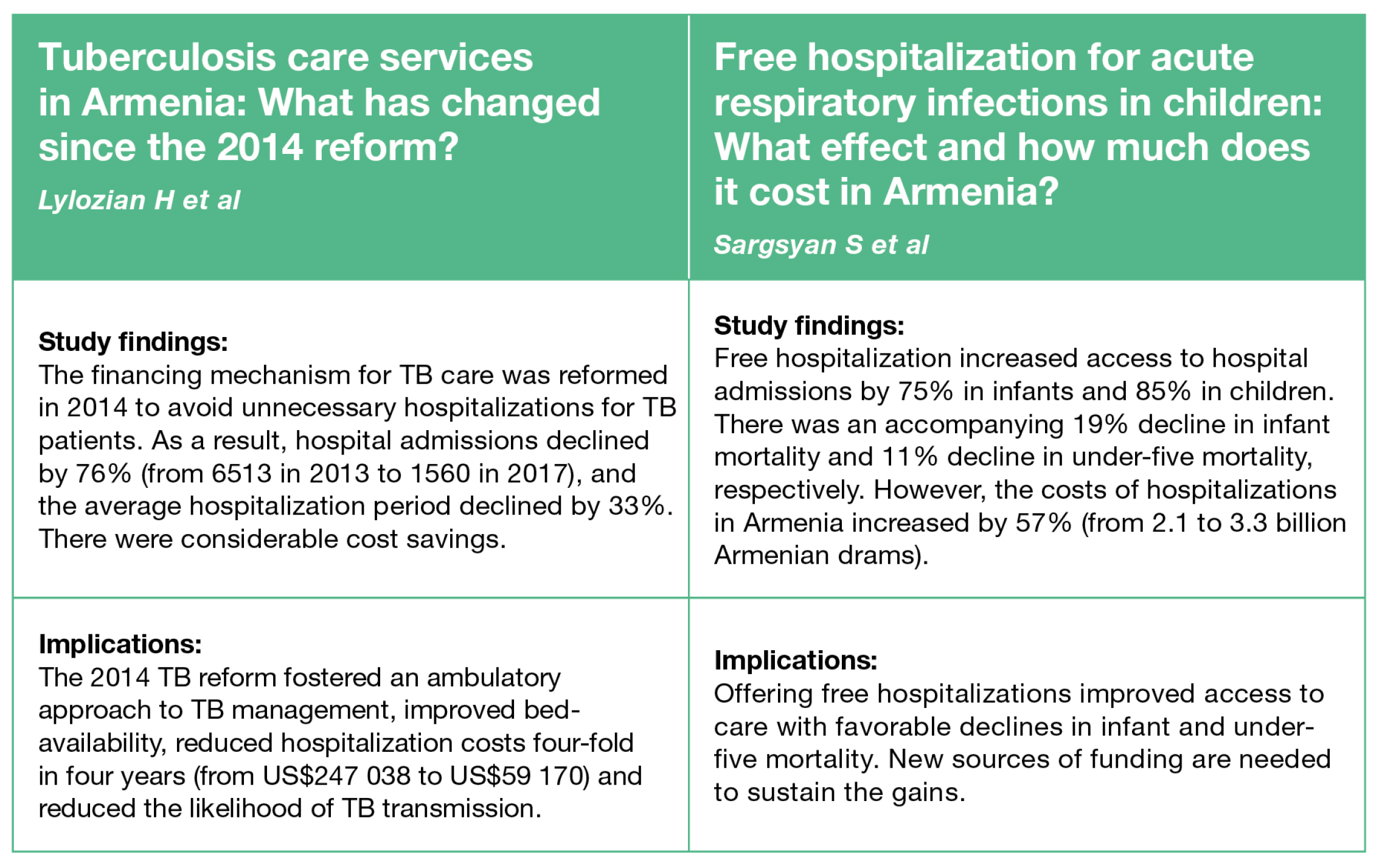
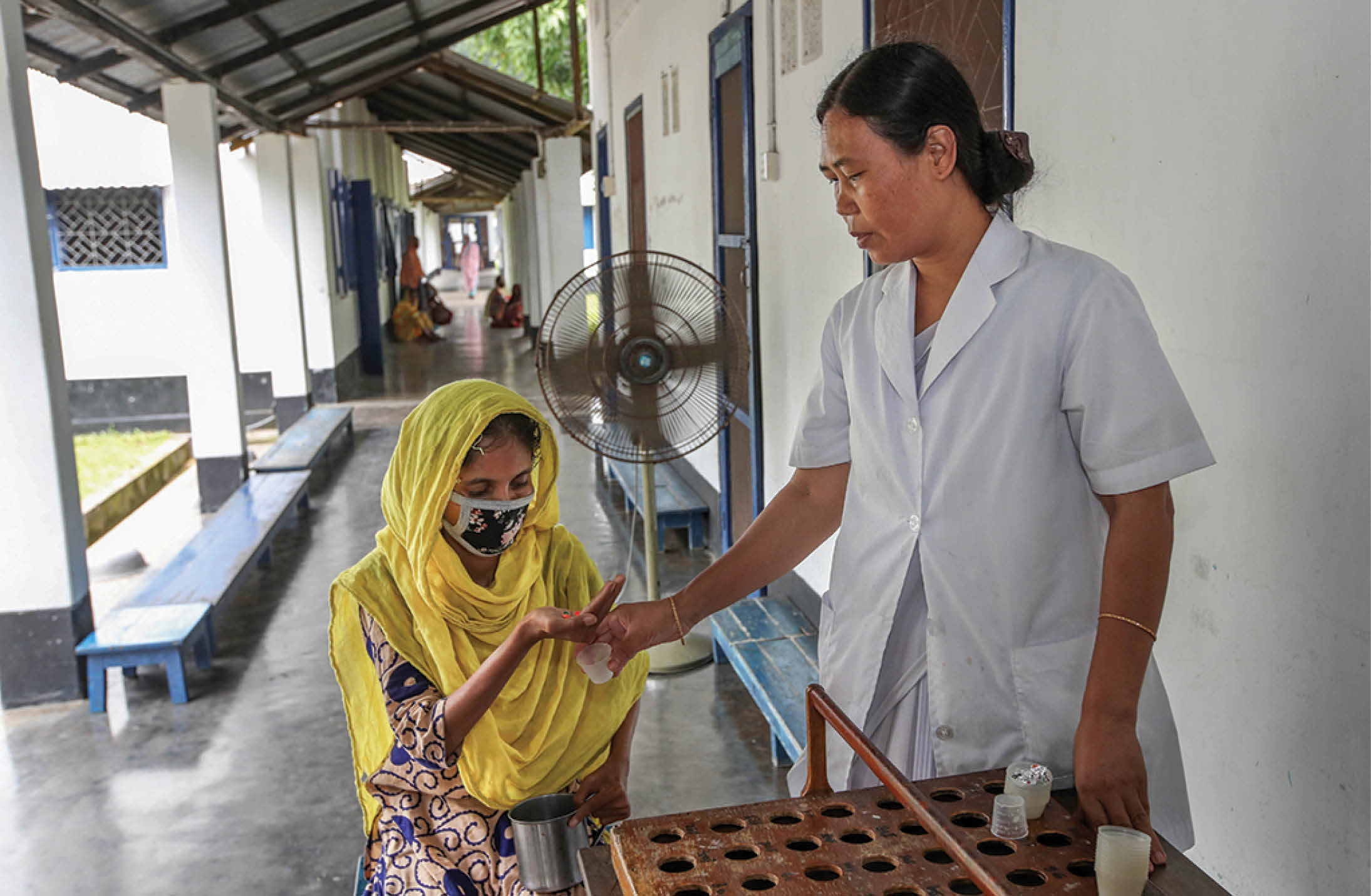

Is overprescription of antibiotics happening in my hospital?
How well are my clinicians adhering to treatment guidelines for infections?
Are there gaps in infection prevention and control at health facilities under my supervision?
These are some of the burning questions faced by frontline health workers and decision-makers fighting antimicrobial resistance (AMR) around the world. SORT IT is well-designed to help answer such practical questions.
At the start of 2019, TDR, with the support of the Government of the United Kingdom’s Department of Health & Social Care, launched a SORT IT programme focused on tackling AMR in Colombia, Ecuador, Ghana, Myanmar, Nepal, Sierra Leone and Uganda.
WHO country offices and national AMR committees have been at the forefront in identifying SORT IT projects that fit with national AMR priorities. TDR has also joined forces with WHO regional offices for Africa, the Americas, Europe,
Currently, 36 operational research studies are underway in five countries. These studies cover a broad range of topics including improving the quality of AMR surveillance data, understanding antibiotic consumption patterns, preventing infection in health facilities, and addressing AMR in the agriculture and environment sectors using the One Health approach.
The generated evidence will help us better understand the actual AMR situation at country level, guide control strategies and contribute to health systems strengthening. SORT IT’s approach to tackle AMR is aligned with the strategic pillars of WHO’s Global Action Plan on AMR which include improving awareness, strengthening knowledge through surveillance and research, reducing the incidence of infection, optimizing the use of antimicrobials, and developing the economic case for sustainable investment.
and South-East Asia to complement the ongoing SORT IT related research with a Small Grants Scheme for operational research to tackle AMR.

TDR’s approach to operational research is contributing to national efforts to fight AMR by developing the capacity to generate and use data on the emergence, spread and health impact of AMR.”
- Jos Vandelaer
WHO Representative in Nepal
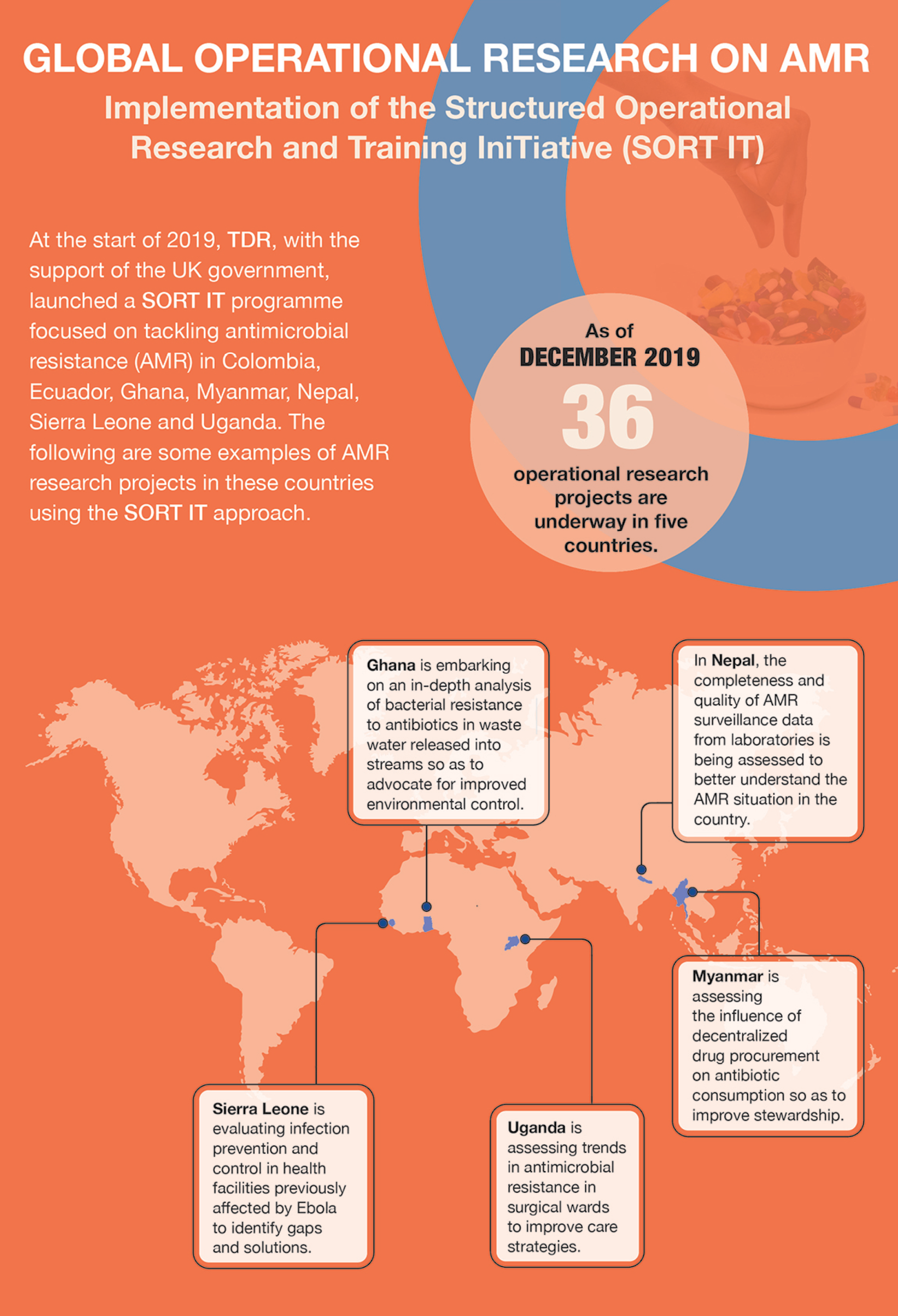
SORT IT to tackle
antimicrobial resistance
A TB patient receives medication at Jalchatra Hospital, Bangladesh










